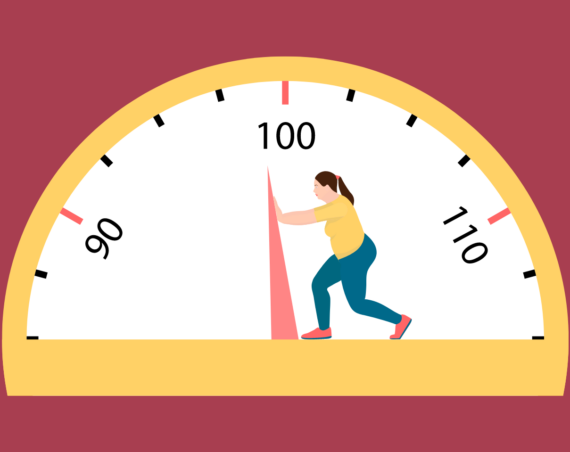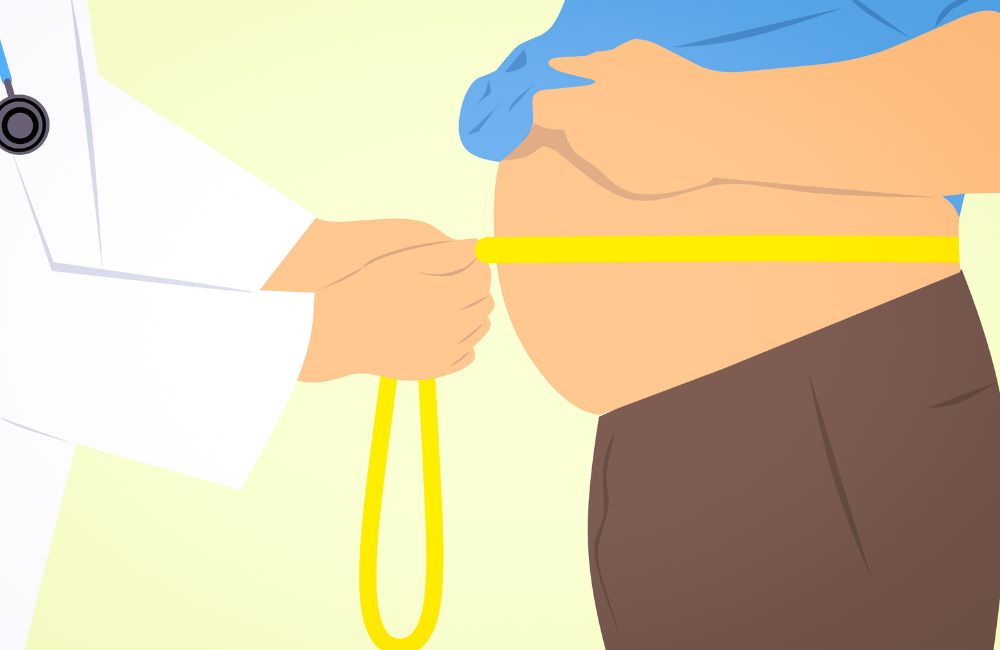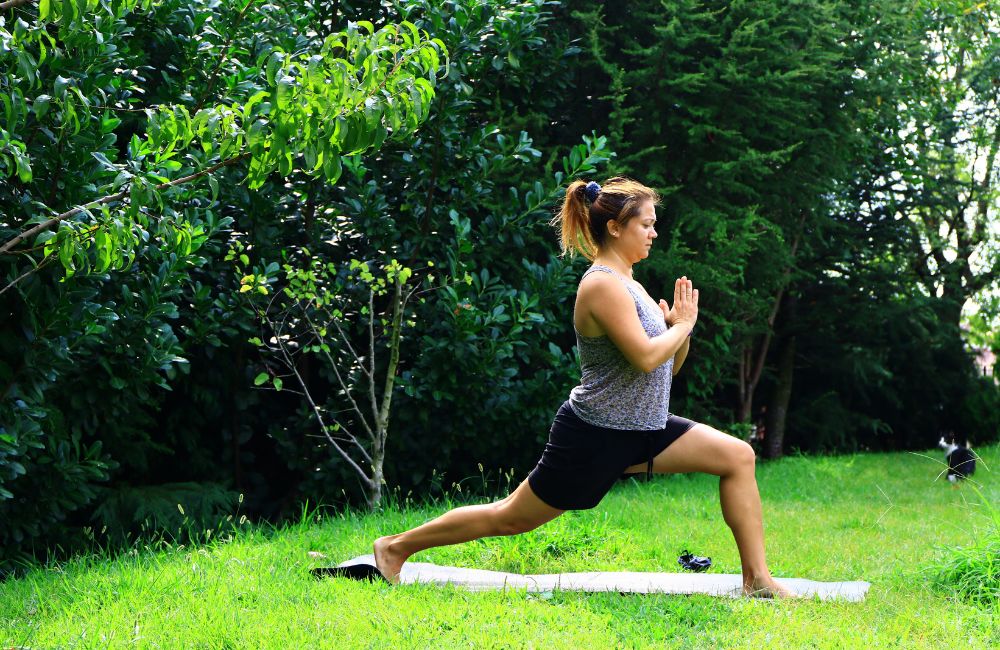
Losing 10 pounds in a month can be an exciting and achievable goal when approached with the right strategies and a commitment to healthy lifestyle changes.
If you’ve ever wondered, “Can I lose 10 pounds in a month?” or are seeking guidance on how to lose weight within a month, you’re in the right place.
In this comprehensive guide, we will explore 10 science-backed tips that will help you shed those extra pounds and kick-start your weight loss journey.
Before we delve into the strategies, let’s
How to Lose 10 Pounds In a Month

What will be required to lose 10 pounds in 30 days? Proper nutrition, exercise, and commitment.
The bottom line is everyone will lose weight at a different rate, but you might be surprised at just how much weight you can lose in a month if you just do these 10 things.
You may also like:
How to Lose 20 Pounds In a Month: 8 Science-Backed Steps
1-Week Mediterranean Diet Meal Plan for Beginners
How To Lose Weight Fast As Possible: These 8 Science-Backed Tips Will Help You Lose Weight Quickly
1. Eat More Protein
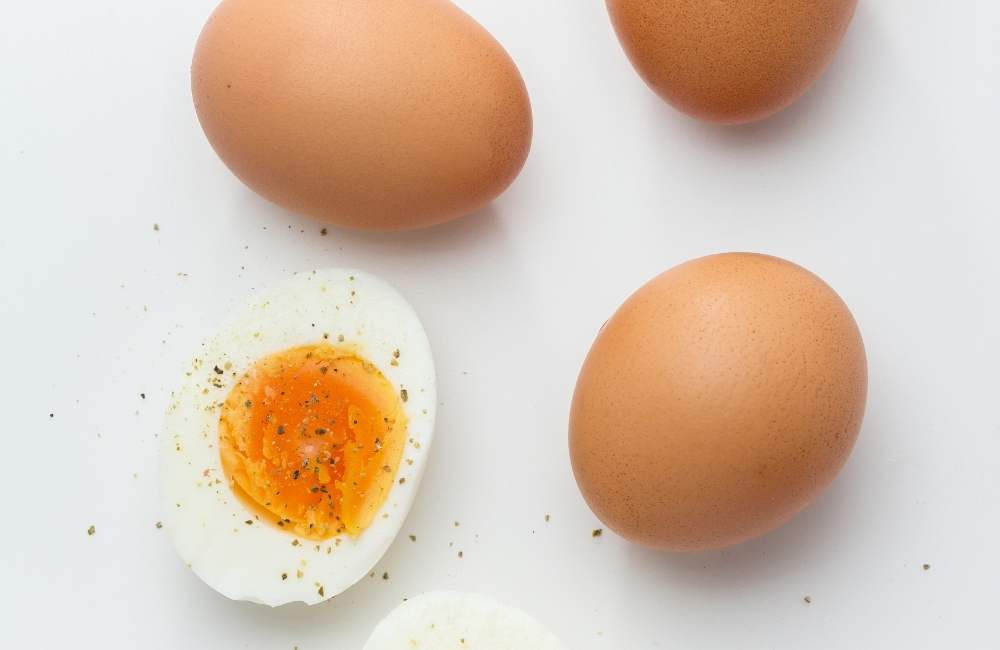
It has been well documented that adequate protein intake is a major key to weight loss (1).
Protein and fiber are the two most filling components of a meal. To lose weight quickly without feeling deprived, make sure you include protein at every meal.
Weight-loss promoting Protein Sources include:
- Grilled Chicken
- Baked Chicken
- Roasted chicken
- Eggs or Egg Whites (try a veggie-filled omelet)
- Fresh turkey slices (if you get packaged turkey slices, look for no nitrate/nitrite added)
- Salmon
- Tuna
- Seeds like chia seeds, flaxseeds, or hemp seeds
- Nuts like almonds, walnuts, and pistachios
- Legumes like chickpeas, black beans, or cannellini beans
2. Eat More Fiber
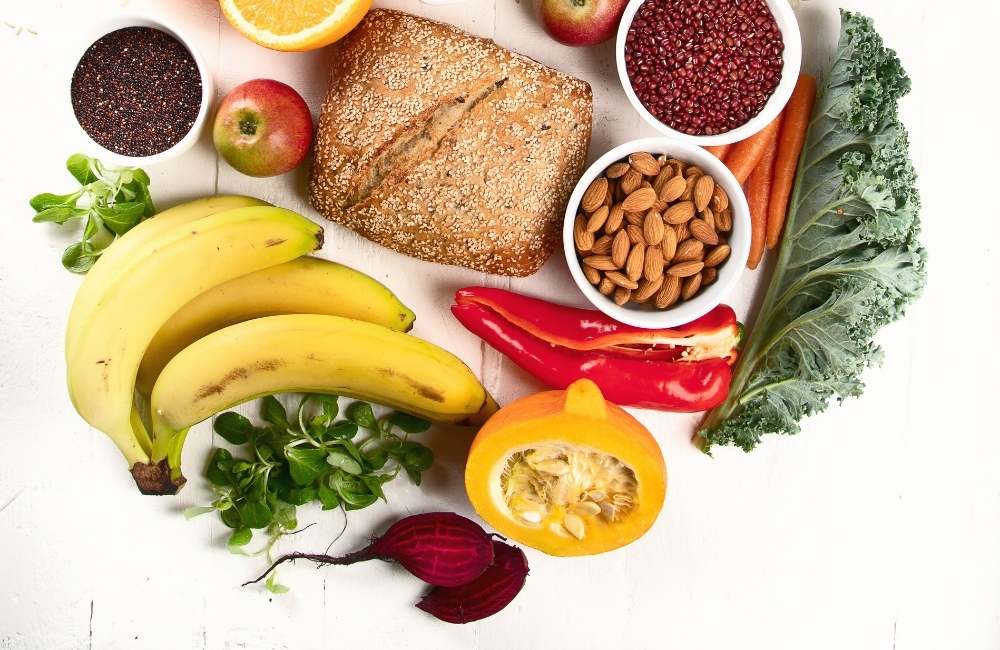
If you want to start feeling full and satisfied at every meal, then make sure all your meals contain plenty of fiber. The bottom line is that eating fiber-filled meals is a crucial component when it comes to weight loss success (2).
Fiber-rich foods include:
- Fruits
- Vegetables
- Whole grains
- Legumes
- Nuts
3. Add More NEAT Activities to Your Day
NEAT stands for non-exercise activity thermogenesis. In a nutshell, NEAT is any physical activity you do other than your intentional workout sessions.
NEAT activities are all the ways you move throughout the day.
Examples of NEAT activities are:
- Walking into a store from the parking lot
- Going up the stairs to put away laundry
- Walking to the bathroom
- Cooking in the kitchen
- Cleaning the house
- Yardwork
Compared to generations past, we do fewer NEAT activities today. Cooking requires less physical labor. We can just throw something in the microwave. In the past, they may have had to pick vegetables in their garden before they even start cooking.
Our jobs also require less physical activity. Many of us now sit behind a computer vs. working outside all day long.
We can find ways, however, to intentionally sneak more NEAT activities into our daily lives.
How to Add more NEAT activities:
- Park far away it the parking lot
- Take the stairs instead of the elevator whenever possible
- March in place while your food is in the microwave
- Set an alarm to go off every 30 minutes. Then when the alarm sounds, step away from your computer and do a few jumping jacks.
- Walk around your house when you are talking on your phone.
- Be creative. There are lots of ways to add NEAT activity to your day. The key is to be more active throughout your whole day.
4. Find an Active Hobby

NEAT isn’t the only way to increase your activity. You can also find an active hobby that you love. If you love something, you will do it more. It’s that simple. Some may love the gym or fitness classes. If you do, awesome! You found your thing. But if you can’t bring yourself to go to the gym, try another activity.
A few ideas are:
- Paddleboarding
- Kayaking
- Gardening
- Hiking
- Golfing
- Playing a recreational sport
- Dancing
- Playing an active. RV game
- Swimming
Once you find your hobby, try to incorporate it into your life at least once a week if not daily.
5. Eat Mindfully

Studies have shown that mindful eating and mindful awareness can help with weight loss (3, 4).
In one study, the subjects completed a 6-week mindful eating program. At the end of the study, the participants had lost an average of 9 pounds (5).
Mindful eating involves slowing down and noticing each bite while you are eating. After each bite, put your fork down. Focus on the bite in your mouth before you begin preparing your next bite. What a simple way to enjoy your food more and lose weight!
6. Eat More Probiotics

Multiple studies have shown that probiotics may help with weight loss (6).
Probiotics are live bacteria that live in your GI tract. This live bacterium is extremely important for your gut health.
Your gut is where all of your food is broken down and where the nutrients get absorbed. Your gut needs to be in optimal health for the best weight loss results.
Probiotics promote optimal gut health. Yogurt, fermented vegetables, kombucha, and kefir are good sources of probiotics. You can also find foods fortified with probiotics.
7. Close the Kitchen at Night

We know that gut health is important for weight loss and that probiotics help promote gut health. But did you know your gut needs rest as well?
Sleep naturally gives your gut time to rest, but if you are a night owl who munches up until bedtime, your gut may not be getting enough rest.
After dinner, think of your kitchen as closed. Put food away and turn out the light after dinner or your early evening snack is over. Try to avoid going back and forth to the kitchen for multiple after-dinner snacks.
8. Get Enough Sleep

Study after study has linked lack of adequate sleep to weight gain. One review found that sleeping less than 7 hours increases your risk of obesity by 41% (7).
Sleep Deprivation can Hinder Weight Loss in Multiple Ways:
- Hunger hormones can become imbalanced
- Lack of sleep may promote weight gain by causing an imbalance in your hunger hormones (8).
Lack of Sleep Can Hinder our Ability to Make Healthy Choices
You may also try to cope with feeling tired during the day, by reaching for empty-calorie foods. When we are sleep deprived, we can’t think as clearly, which can hinder our ability to make healthy choices.
Poor Sleep Causes fatigue and leaves us with Less Energy for an Active Lifestyle
When you are tired, the last thing you want to do is work out. If you do muster up enough willpower to work out, you will most likely feel too tired to push as hard as you normally would have if you had slept through the night.
Less Sleep Can Decrease the Health of Our Gut
If we are up late eating, we are not giving our gut enough time to rest. Late-night snacking may be preventing you from reaching your weight loss goals in more ways than one.
9. Limit Fried Foods
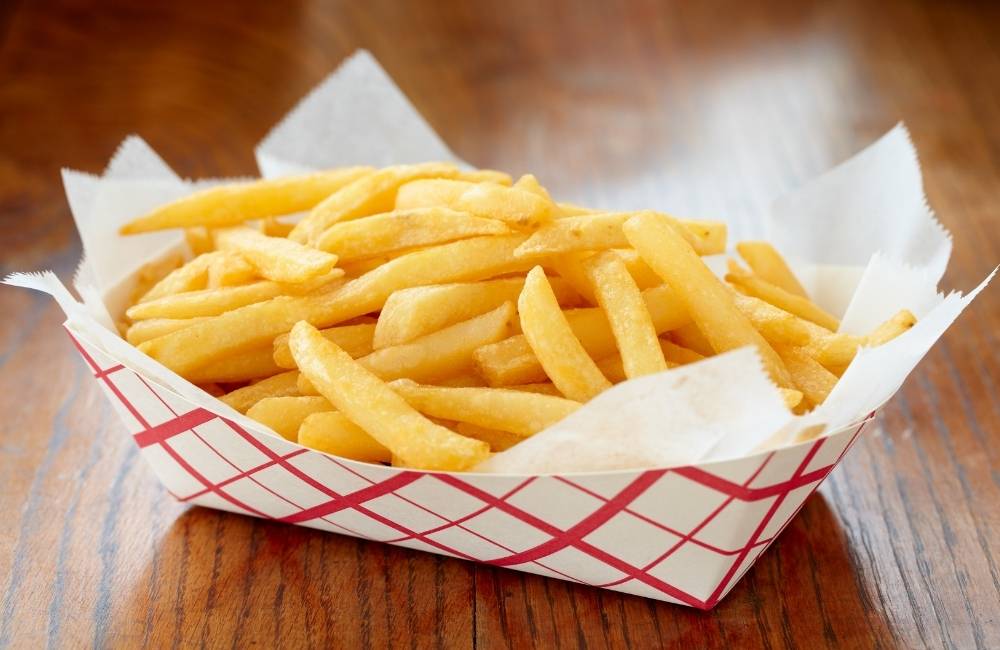
A healthy low-calorie food can become a more calorie-dense food once you deep fry it in refined carbohydrates.
Plus, consumption of fried foods is associated with an increased risk of all-cause death (9).
Instead of frying, try grilling, baking, boiling, or sauteing your foods. Limit eating foods coated in refined carbohydrates.
10. Limit Refined Carbohydrates
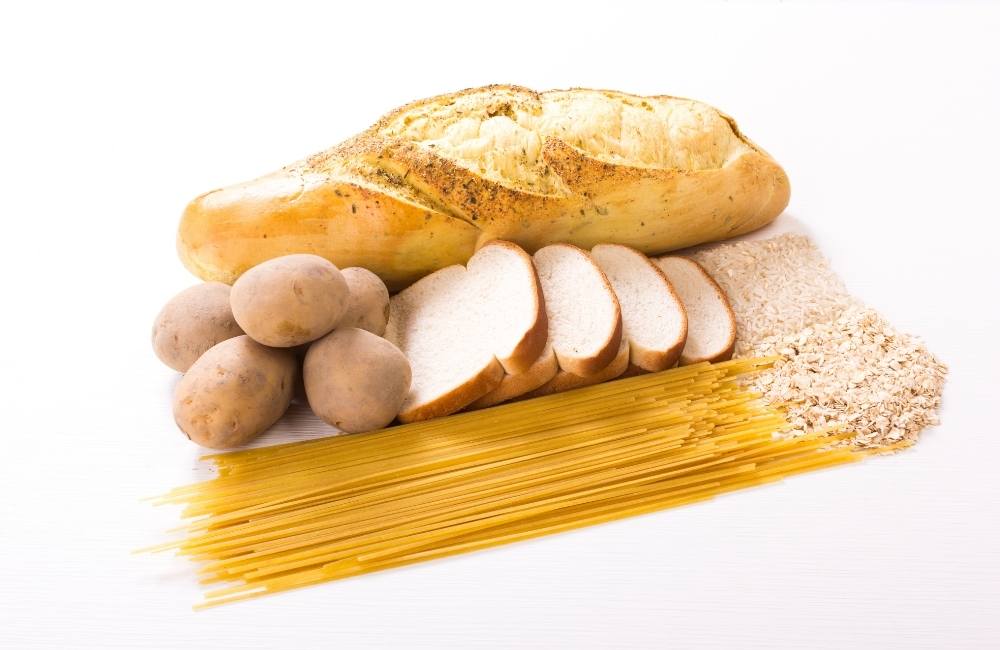
Not all carbohydrates are created equal. Whole grains are high in fiber and nutrients, while refined carbohydrates are stripped of their fiber and nutrients. Because refined carbohydrates are stripped of fiber and nutrients, refined carbohydrates don’t help you feel full and satisfied.
The best way to limit refined carbohydrates is to replace them with something else:
- Instead of white bread for sandwiches, try whole grain bread, whole grain tortillas, or lettuce for a lettuce wrap
- Instead of white rice, try brown rice, quinoa, or cauliflower rice
- Instead of white pasta, try whole grain pasta, zoodles, or konjac pasta.
- Instead of pastries, cakes, sweets, or candy, try satisfying your sweet tooth with a bite of decadent dark chocolate.
Summary
These are some of the best weight loss tips if you want to lose 10 pounds in a month.
In a nutshell, the keys to losing 10 pounds in a month are:
- Eat Plenty of Protein, Fiber, and Probiotic-rich foods.
- Get adequate sleep on most nights
- Incorporated exercise into most days. Try adding NEAT activity throughout the day, and pick an active hobby that you love.
- Limit fried foods and refined carbohydrates.
- Close the kitchen at night to avoid snacking throughout the night.
- Practice mindful eating.

